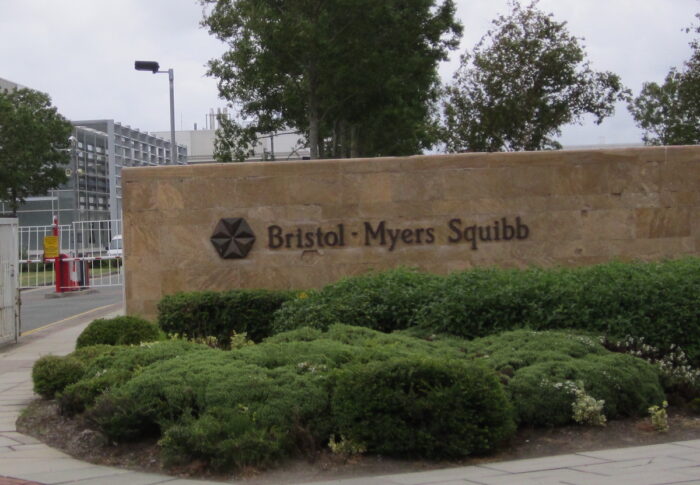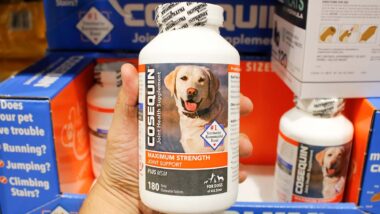Top Class Actions’s website and social media posts use affiliate links. If you make a purchase using such links, we may receive a commission, but it will not result in any additional charges to you. Please review our Affiliate Link Disclosure for more information.

Bristol-Myers HIV medication antitrust settlement overview:
- Who: A judge approved a settlement between Bristol-Myers Squibb and direct buyers of HIV medication.
- Why: The buyers alleged Bristol-Myers Squibb engaged in anticompetitive conduct to keep HIV medication prices artificially high.
- Where: The settlement was reached in California federal court.
A judge has given the green light to a $10.8 million antitrust settlement between Bristol-Myers Squibb and direct buyers of HIV medication who alleged the pharmaceutical company engaged in anticompetitive conduct to block generics competition and artificially inflate medication prices.
On June 3, California federal Judge Edward M. Chen granted KPH Healthcare Services Inc.’s motion for preliminary approval of the settlement with Bristol-Myers and its subsidiary E.R. Squibb & Sons LLC.
The settlement comes after KPH, a retail and online pharmacy operator, sued Gilead and Bristol-Myers in October 2020, accusing the companies of colluding to monopolize the market for drugs commonly used to treat HIV and forcing direct buyers to overpay for the medications as a result.
The complaint alleged Gilead worked with companies like Janssen Pharmaceuticals and Johnson & Johnson to delay generic competition and extend patent protection for its drugs.
Bristol-Myers settlement includes waiver to allow potential generic competition
The class is defined as anyone “in the U.S. and its territories who directly bought Atripla, Evotaz, Reyataz, Sustiva, Truvada, Complera or Stribild, or any of their generic equivalents … from any defendant or any brand or generic manufacturer from Oct. 6, 2016 until Oct. 19, 2021,” according to the order.
The medications are part of the combination antiretroviral therapy, or cART, regimen drugs often used to help treat HIV.
Under the terms of the antitrust settlement, Bristol-Myers will pay $10.8 million in cash and waive enforcement of its license agreement with Gilead Sciences to allow for the possibility of generic competition with Evotaz, an HIV medication that combines Gilead’s drug Cobicistat and a generic version of Bristol-Myers’ drug atazanavir.
Without that agreement, generic competition would have been reduced for another seven years, until September 2029, according to the settlement documents.
A final approval hearing is set for September, according to the order.
In 2021, Gilead Sciences, Bristol-Myers Squibb, Janssen Pharmaceuticals and a group of consumers who accused the companies of conspiring to keep certain HIV therapy drugs off the market and at high prices reached a $10 million class action settlement.
What do you think of this settlement? Let us know in the comments.
KPH and the direct buyers are represented by Francis O. Scarpulla and Patrick B. Clayton of the Law Offices of Francis O. Scarpulla; Dianne M. Nast and Michele S. Burkholder of NastLaw LLC; and Michael L. Roberts and Erich P. Schork of Roberts Law Firm US PC.
The Bristol-Myers HIV medication settlement is KPH Healthcare Services Inc. v. Gilead Sciences Inc., et al., Case No. 3:20-cv- 06961, in the U.S. District Court for the Northern District of California.
Don’t Miss Out!
Check out our list of Class Action Lawsuits and Class Action Settlements you may qualify to join!
Read About More Class Action Lawsuits & Class Action Settlements:
- SuperValu class action alleges non-drowsy Equaline brand cold, flu medicines falsely marketed
- Cerebellar atrophy linked to long-term use of Dilantin
- Target Up & Up Products Added To Growing List of ‘Non-Drowsy’ Product Class Action Lawsuits
- Walgreens Kept Doctor’s Prescription Data From Store Pharmacists, Manager Testifies in Opioid Bellwether















12 thoughts onBristol-Myers settles HIV medication antitrust lawsuit for $10.8M
I’m a little confused here. “Direct buyer” means who exactly? For example, a health insurance company provides these drugs to their health insurance policyholders with their out-of-pocket monthly health insurance premiums (including members using their COBRA benefits). Who is the “direct buyer” there? Those monthly premiums are buying something, aren’t they? Then there is the case of the person who, without insurance or any public aid, goes to the pharmacy with a script and cash/credit card and buys the drugs—obviously, that person would be considered the direct buyer. But what about the person who has no private nor company-sponsored health insurance but is admitted to a government-sponsored program to get their meds (paying no money themselves and I’m not talking about Medicaid). I’ve been in all three of these examples for two of the HIV medications listed, Sustiva and Atripla, and now I’m on Medicare with the part that pays for drugs—and I have copies of all of the drugs given to me on a monthly basis over the period in question from the pharmacies. I have not heard from anyone, nor have I received any postcards alerting me to anything. Is it too late for me to join a lawsuit against the manufacturers of Atripla and Sustiva? Could you forward my questions to the appropriate lawyers and ask them to contact me using the Email address I have provided here? I’m lost.
Add me I was affected by this